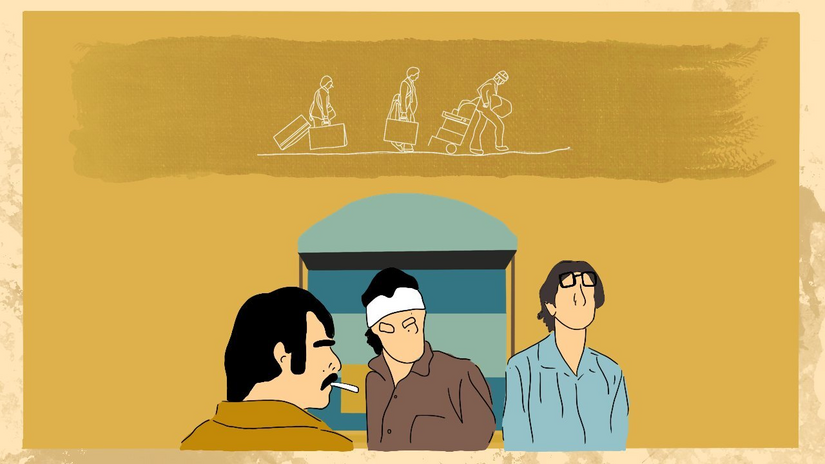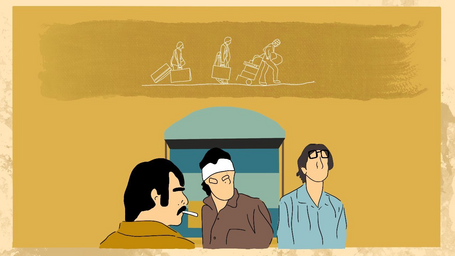(This is the second part of a two-article series that throws light on the problematic glorification of toxic masculinity in Bollywood. To read the first part, click here)
The tendency of Bollywood to overlook toxic masculinity is quite problematic. Stalking and an unhealthy level of possessiveness are glorified as signs of love which ultimately promotes abusive behaviour in our society. These instances set a terrible example of what men should behave like when they are in love.
Most of us have probably romanticised and idealised such characters by turning a blind eye to the red flags from the very beginning as they have been so culturally normalised. In an attempt to combat this harmful perception, here’s a list of the top 5 characters who are actually incredibly toxic but Bollywood’s glorification and romanticisation have made us mischaracterize them:
Kundan from ‘Raanjhana’
The main character Kundan’s “funny” and “playful” advances of staring adoringly at Zoya or embarrassing himself in front of her soon turn maniac as he gradually turns to violent incidents like slitting his wrists until she says yes to him.
He fails to understand consent. Zoya talked to him, laughed with him but only ever saw him as a friend. He takes all these as “signs” and builds his romantic intentions upon them, pursuing her with even more intent. Jasjeet’s character (played by Abhay) justifies this very problematic man instead of defending his girlfriend.
Love and obsession are two different things. Destroying someone’s life and then dying for someone just because they don’t love you is not a sacrifice and doesn’t make one a hero.
Ayan from ‘Ae Dil Hai Mushkil’
“What else do you want me to do to make you love me?” said Ayan, the protagonist in this film. These words are directed at a woman named Alizeh who has constantly rejected his multiple romantic advances, and made it abundantly clear that she only sees him as a friend.
But Ayan refuses to take ‘no’ for an answer and expresses disbelief that she doesn’t reciprocate his affections. He constantly gaslights her, makes her feel guilty for not loving him back, and throws multiple tantrums in the due course of the film for that very reason. He again does not understand consent.
Since Alizeh gives him a shoulder to cry on and is unconditionally kind to him, Ayan thinks of this as a base for his romantic love. Bollywood has repeatedly asserted that a guy and a girl cannot remain ‘just friends’ for long, and this character follows that same flawed ideology in this movie.
Maddy from ‘Rehna Hai Tere Dil Mein’
Everyone loved Maddy’s character. He was played by the 90s heartthrob R Madhavan. However, his actual character was extremely toxic. He was not the innocent lover boy everyone made him out to be! He fell in ‘love’ after watching the lead heroine dance in the rain. After that, he stalks her at a friend’s wedding, takes pictures of her, drinks from the glass she discards and brings it home. He even follows her around, pretends to be her fiance, beats her actual fiance and can’t take a ‘no’ for an answer.
How did we all even end up romanticising a character like Maddy?!
Kabir from ‘Kabir Singh’
This movie tried to depict misogyny. That is real and is not the problem. However, its positive portrayal is.
Kabir’s character witnessed so many excuses in defence of his abusive behaviour. This actually reveals the problem in our society — there is an omnipresent level of alarming misogyny around us.
He literally doesn’t let Kiara’s character be on her own. He hits her and calls it love and is continuously violent. The romanticisation of toxic masculinity in this film shows the messed up societal views of a healthy relationship.
We are constantly shown that a responsible “MASCULINE” man will make all the important decisions for his heterosexual partner. Protecting her from any harm will include stripping her agency to CONSENT. The fact that this movie gets called a love story is a nightmare in itself.
Rahul from ‘Kuch Kuch Hota Hai’
Rahul laughs at Anjali for dressing up and mocks her for being a “tomboy” while he flirts with other girls. He then marries a glamorous character Tina and forgets all about Anjali, until she is recollected by his 8-year-old daughter.
Years later, when Anjali became a saree-clad heroine with flowy long hair and kohl-rimmed eyes, somehow his affections and love for her are reignited. He plays a pivotal role in breaking her marriage with Aman, a perfectly nice guy.
Does this film want us to believe that his change of heart and the realisation that he loves Anjali had nothing to do with her physical appearance? What kind of a man changes his feelings just on the basis of how one looks?
Ultimately, portraying and showcasing a flawed character is a part of filmmaking and is justified. However, what is not justified is normalising such characters. If the audience applauds problematic characters or scenes, then that storytelling has failed to honestly portray the ramifications of harmful consequences of these scenarios.
It’s time that Bollywood realizes the fact that violence is not equal to love. Toxic masculinity and all its facets should be shunned, not glorified.
What do you think? Do you agree that Bollywood is taking things too far with these movies?


